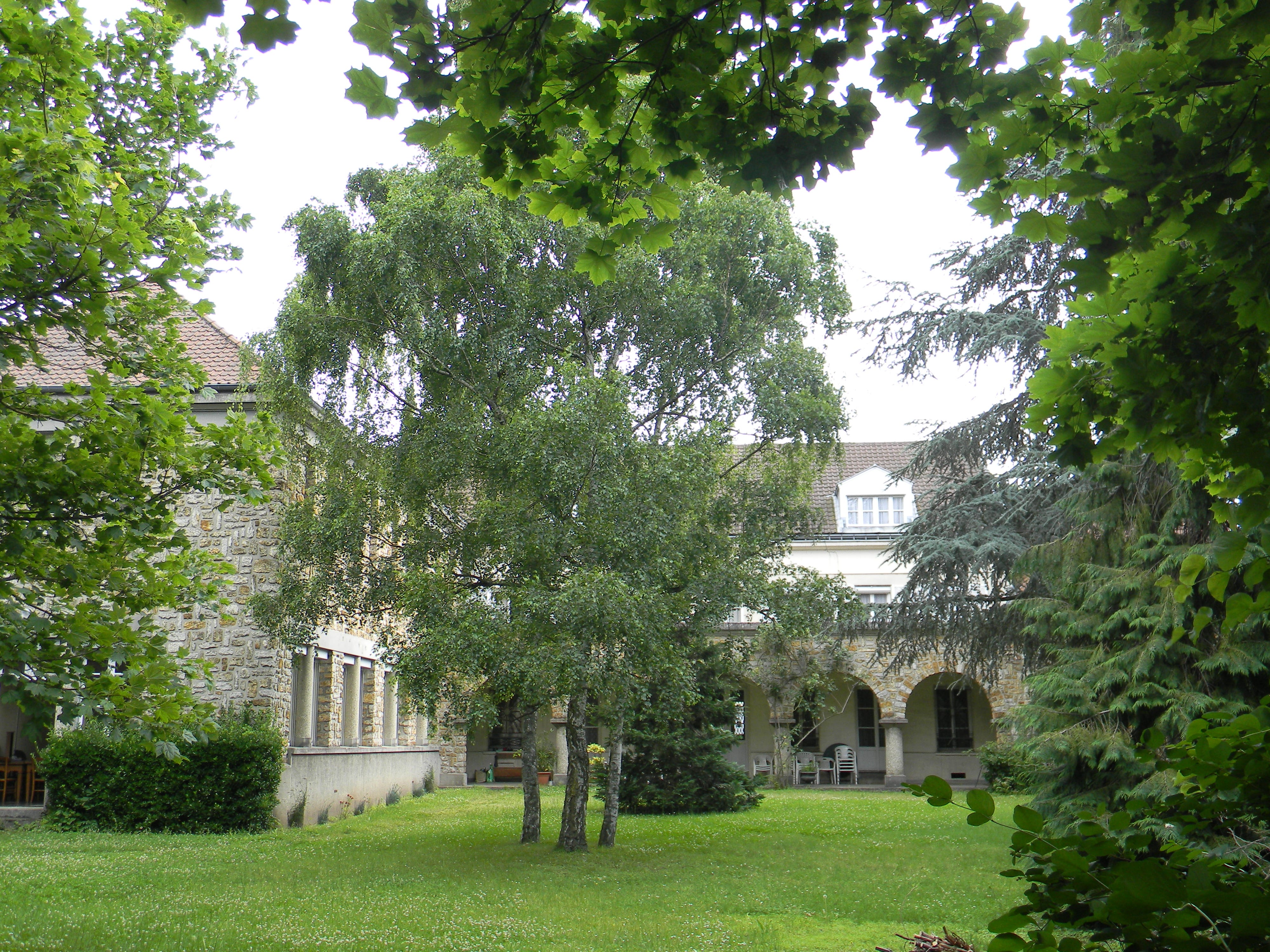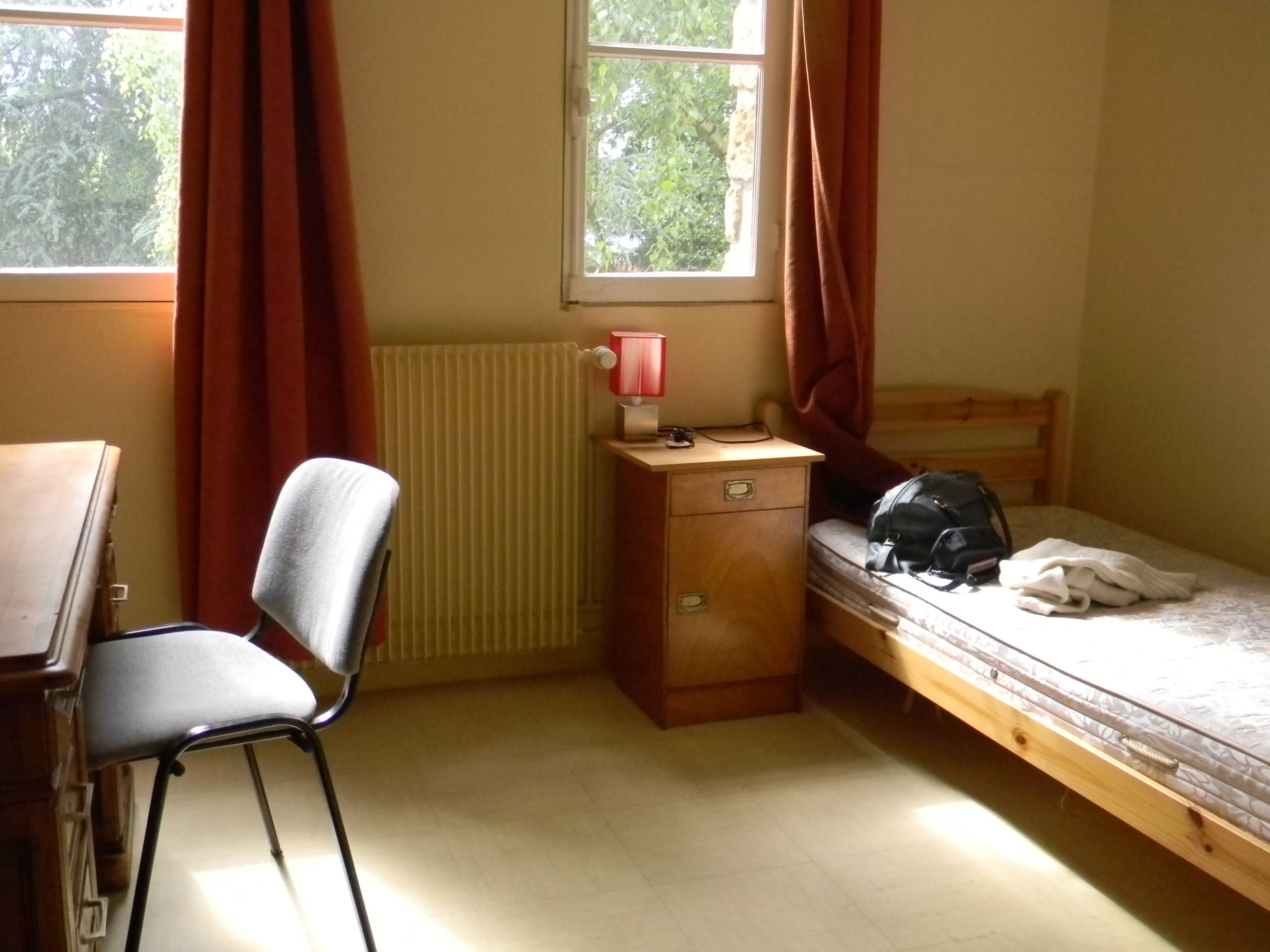
Courtesy of Eloise Stark
I walked into the rectory slightly worse for wear. It was my first week of university, and I had spent it drinking with my new classmates and desperately looking for somewhere to live other than my friend’s couch.
I’d been over the moon when I got accepted to university in Paris — until I realized my grant wouldn’t cover rent. The places I could afford were dire. I visited a flatshare listed as a three-bedroom, and the landlord earnestly showed me where I could build walls to create bedrooms in the empty attic space. Another option was described as a “triplex” but turned out to be a glorified stairwell. There wasn’t even enough space for a double bed on the landings.
I scoured every rental site and even researched “logements contre services,” or work/accommodation exchanges. My naive, 18-year-old self got a sobering wake-up call as I read through offers from men claiming to have space in their bed for a student — provided she also cleaned the kitchen, of course.
I found a room in a rectory
After reading a few dozen or so similarly hard-to-resist offers, I was ready for monastic life. So it boded well when, during yet another Google search, I stumbled across a list of Catholic student residences run by priests or nuns. Among them was a room inside a rectory, far out in the banlieues of Paris, where 12 priests had converted seven former cells into housing for low-income students. It only cost €250, including bills. The other options I had looked at were all over €500 — even the stairwell.
As I walked up the steps to the rectory, I felt like a disgraced woman from Victorian times seeking solace at the church’s doors. The image was quickly dispelled when I was greeted by a priest wearing double denim and a wide grin. “I’m Father Gabriel,” he said, shaking my hand. “Welcome.”
He showed me to my room. It was a simple space, with only a bed and a wardrobe. But it looked out onto a vast garden surrounded by cloister arches, with carved statues peeping out of the overgrown grass. “Downstairs, there is a working space and a kitchen for you and the other students,” he said.
I was thrilled by my new digs, especially when I learned that there were no rules or conditions, except attending semestrial dinners and occasionally checking in with the priests about my studies. We were expected to be considerate — no wild parties or trashing the place — but there was no curfew, we could have friends to stay over, and we didn’t have to go to mass.

Courtesy of Eloise Stark
We created a lively little community
My other housemates were a friendly bunch: a couple of mature students, one studying marketing, another theology. A quiet German guy who studied maths and chain-drank Red Bull. Four students from Senegal, including a history Ph.D. candidate in his fifth year who, always got a slightly panicked look in his eyes whenever asked about his thesis.
My memories of the year are like a series of absurd snapshots, like sneaking into the house on a Sunday morning and running into the priests as they rushed to iron their clerical collars and robes and get to mass. Picture seeing that on your walk of shame.
There was a monthly rota for cleaning the common areas, and I fondly remember laughing with my housemates as we did chores. Since we were all in different universities and studying hard, we didn’t spend much time together, so it was nice to have these homely moments, blasting music and mopping floors.
Once, I was sitting at the kitchen table, looking harrowed and a little manic as I worked on a particularly difficult assignment. A priest came in and asked for my help repotting his tomato plants. At first, I resented him for interrupting, but as we worked in the garden, I felt less stressed than I had in days. I realized I wasn’t the one helping.
Another highlight was the group dinners that happened every couple of months. They always included great food and even better wine. The priests would ask us about our studies to check in and make sure we were doing OK. As the night went on, they began to share parish gossip as they topped up our glasses.

Courtesy of Eloise Stark
I look back on life with the priests and other students fondly
In many ways, it was a perfect place to live. There was a real sense of community among our odd group of priests and students. We were considerate toward one another, and I don’t remember a single argument. I learned a lot about sharing space with people who see the world very differently — and how a little compassion (and a lot of red wine) can bring us together.
At the same time, I was always exhausted. I spent two hours a day on public transport. The last train back to the area was at 11 p.m., so whenever I wanted a night out in Paris, I had the choice between taking a creepy night bus or staying out until the first train in the morning at 6:23 a.m. I usually chose the latter.
I decided to look for alternative accommodation for the following year, and my university helped me find a cheap rental. It was a former maid’s room in the eaves of a fancy building of the 7th arrondissement. It was so small that I could touch every wall without leaving my bed, but it was all mine, and in the heart of the city. I was happy, although I often thought back wistfully to the chaotic little community I had left behind in the rectory.
The post I couldn’t afford rent in Paris, so I moved in with 12 priests appeared first on Business Insider.




